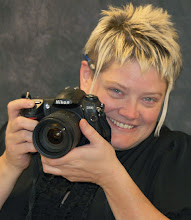
Right now, 17-year-old Manuel de Jesus Munguia ferries people to and from their destinations in El Sauce on a borrowed bike taxi Monday to Friday. He doesn't have time to go to school when everyone else does, when he's helping his mom pay for home expenses. He attends class on Saturdays and thinks about the day he might hop off his "caponera" for a full-time job. Maybe in construction.
Better, in an office.
Best, working for the town in the mayor's office. Or as a translator, meeting people from other cultures.
"If he told his friends that, they'd probably laugh at him," says Yacarely, "because to be in an office here is like 'wow."
It would be a much longer way off if Manuel didn't spend three nights of his little spare time learning to conjugate present-tense verbs and master the who, what, when, where and why of conversations in the New York School of English.
"He's our best student," says Yacarely. Manuel isn't the best English speaker, but he's there every evening and so willing to practice his classmates tease him that he hogs the discussions.
In reality, says Kellan, this is Manuel's way out.
With unemployment hovering around 40 percent and the El Sauce mayor, Ervertz Delgadillo reaching out to Geneseo and others for help, there's few jobs to be had in El Sauce. Manuel said he looked for many there wasn't any, so he drives the bike taxi.
Renting one costs 40 cordobas a day — $2. Manuel can use his brother's until February, when he comes back to town. Most days, Manuel earns 50 cords a day — 10 more than the cost to rent it.
"Sometimes I make money, sometimes I don't," he says. It depends on the luck of the draw for customers. This day we talk, he has made nothing. The day before, 100 cordobas in fares. It all evens out to about a dollar a day take home.
"I give all I make to my mom for expenses in the house," says Manuel. His two older brothers are in Costa Rica for work and send money home; it isn't enough so Manuel pitches in to care for him, his mom and younger brother.
Without any other skills, options are pretty limited for what Manuel can do in El Sauce, says Kellan.
Knowing English automatically boosts his marketability.
When he's good at it, Kellan says, Manuel can be a tour guide in El Sauce, Léon or another town. He can interpret. He can work in a business that wants to do business with the United States. He can work with nonprofits like World Vision, where communicating overseas is key.
Not all that many people speak English in Nicaragua; Manuel will become a commodity if he keeps it up.
He could even earn a spot in the mayor's office.
When you talk to Manuel he's polite, smiley and entirely shy. He fidgets with his backpack strings, shifts in his seat. Clearly, it's a struggle to overcome his shyness each night in English and sing about seeking words of wisdom with the U.K's Fab Four.
Volunteers in English sing a song in English every night and even though he looks like he's going to high-tail it out the front door before he opens his mouth, Manuel always raises his hand.
"Let it Be" is a favorite and the class is his only chance to practice his skills.
"That's what moves me to get up and stand up and use what I'm learning," says Manuel, "because there's no other way of using it here."
"It was unbelievable," says Manuel, "how lost I was. Sometimes when I used to talk to Kellan I had no idea what he was saying. Now I feel like I can understand."
He loves it so much that oftentimes on his bike taxi, he'll pedal by a street vendor or a doorway opened, and hear the families inside relaxing to music.
"If I hear the music I'll stop and try to figure out if I can understand what they are saying, if I know the lyrics," he says.
Manuel remembers the very day he signed up for English claass — June 3, 2008. He was riding his taxi, saw the sign posted on the plain blue door. It was an easy decision.
"I would be able to speak another language and I could talk to people from other cultures," remembers Manuel. "Maybe someday I will have the opportunity to travel and I would know English too."


No comments:
Post a Comment